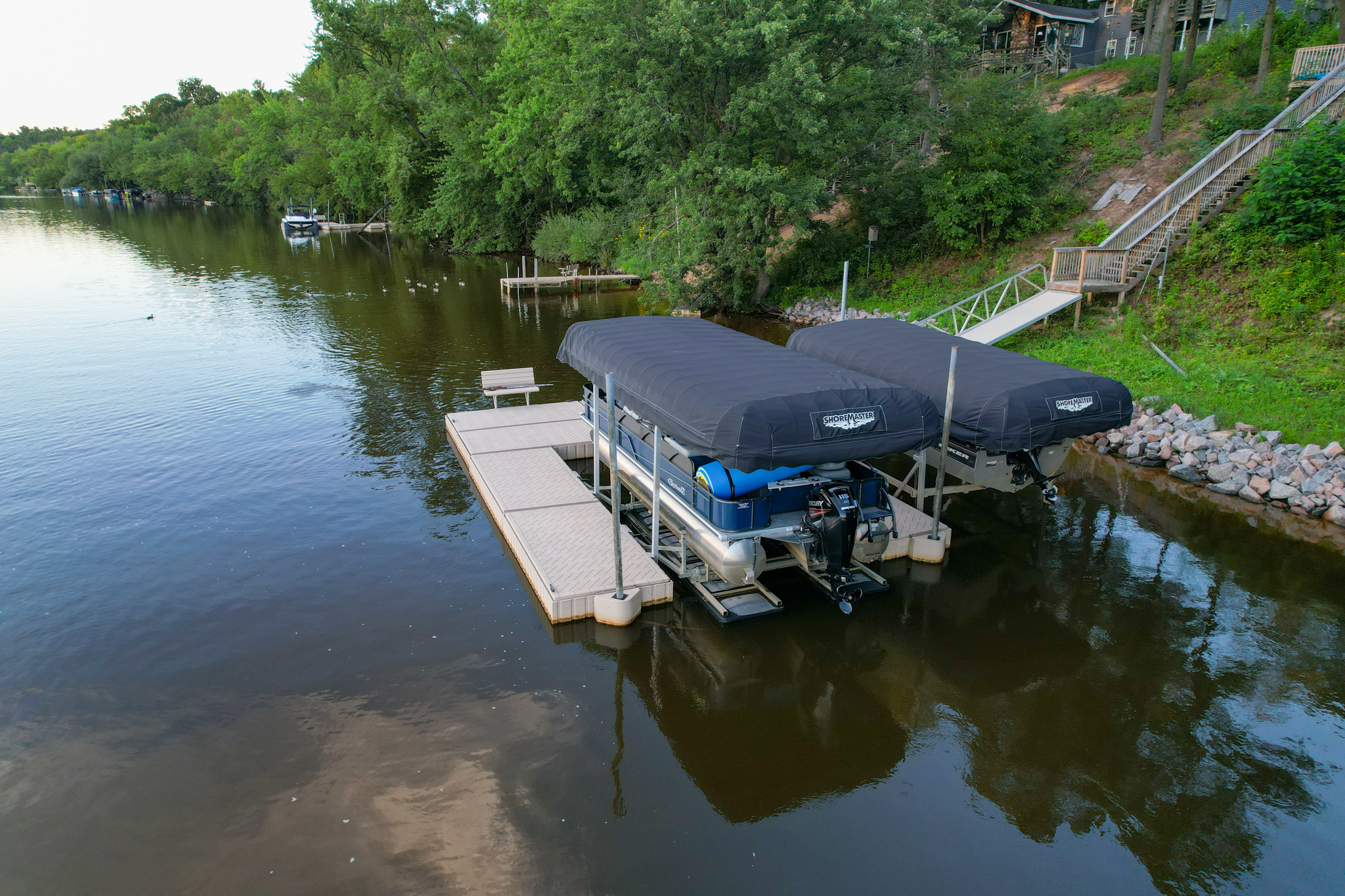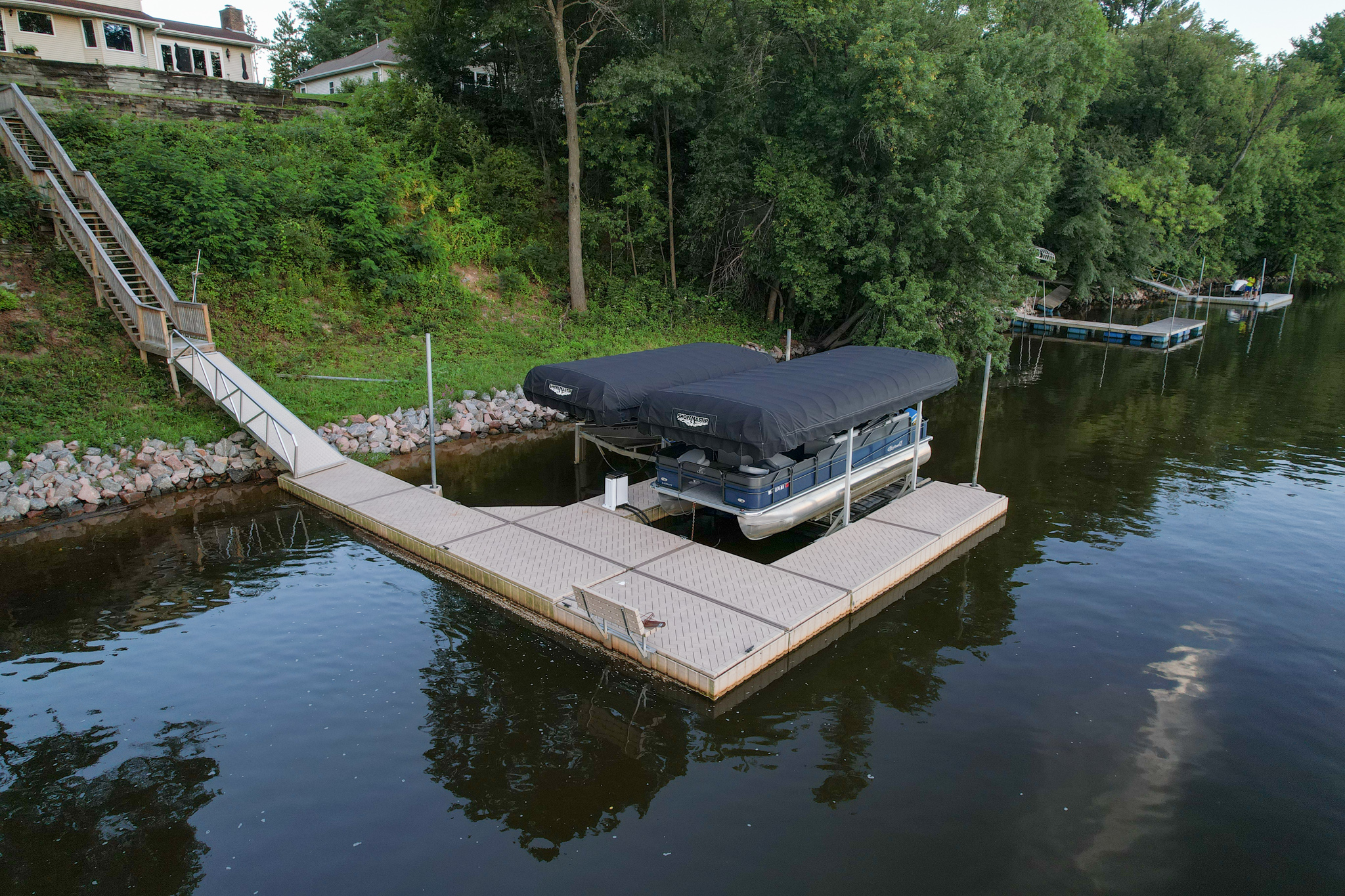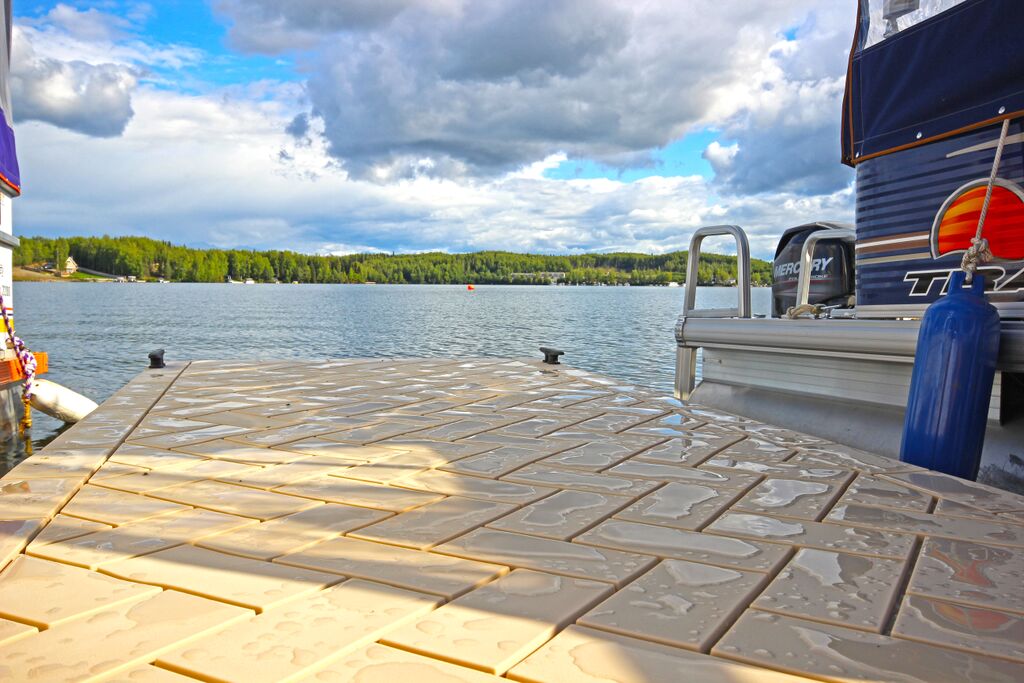What is a Floating Dock?
A floating dock is a platform and decking supported by buoyant pontoons. These pontoons are air-tight, highly durable, and often filled with polystyrene or a similar material that allows the dock to keep floating if the drums get damaged. The entire system can float because the pontoons are buoyant and displace the water underneath them, allowing it to float on top of the water. They’re typically anchored with chain and anchor systems to keep them from floating off, and they are connected to the shore with a gangway. PolyDock’s modular dock system will float up and down with the water level, as all floating docks do. It can also be anchored in place with either pipe brackets and pipe or with anchors for deep water applications.
What is a Modular Dock?
A modular dock system is composed of several smaller modules. These modules allow for various dock sizes and shapes based on the owner’s needs. Many also have flexible connection systems, which allows the owner to change their dock layout if something doesn’t work for them one year or if they expand in future years. Modular dock systems are also very likely to have compatible dock accessories that can also move around the dock, which means that your dock system isn’t limited to just a place to keep your boat, but a full outdoor entertainment area.
In their groundbreaking study, Ohl and colleagues (Ohl et al., 2019) delve into the concept of fully floating shipyards, highlighting the economic and logistical advantages of modular floating docks. Their research presents a novel approach to maritime infrastructure, emphasizing the efficiency and flexibility of these systems, which is particularly relevant to the evolving needs of the waterfront industry. Similarly, Hasanudin and Yulianto (Hasanudin & Yulianto, 2018) emphasize the engineering precision behind spud housing for floating docks, showcasing the importance of stability and safety through advanced analysis techniques. Together, these studies underscore the transformative potential and operational efficiencies of modular floating docks for the maritime industry.
The Benefits of a Modular Floating Dock System
One of the biggest benefits of a modular dock system is that the modules are movable and flexible. Not only does this movability allow you to customize your layout, but it’s also part of what makes the modular floating dock system so easy to dismantle and move to the shore before big storms or winter weather.
Floating docks are great systems for shorelines with deep or fluctuating water. The fact that they float means they can adjust along with the water level without you having to worry about adjusting the legs to keep the system at an appropriate height. An anchor can also reach further than legs or piles can, and anchors are also convenient for systems where minimal disruption to the bottom is needed or when legs just won’t work. Electrical systems on a floating dock are also in no danger of being submerged—because a floating dock is always on top of the water, attached electronics will stay above the water.
Does a modular floating dock system sound ideal for your shoreline? PolyDock can help you get started with your next system. Get in touch with us for more information on our modular floating dock systems and what would work best for you.
Ohl, C., Arnold, A., Uys, H., & Andrade, M. (2019). Floating Shipyard Design: Concept and Application. Lecture Notes in Civil Engineering. https://link.springer.com/chapter/10.1007/978-981-13-8743-2_4
Hasanudin, H., & Yulianto, A. (2018). Design and Construction of Spud Housing for Floating Dock. , 159, 02060. https://www.matec-conferences.org/articles/matecconf/abs/2018/18/matecconf_ijcaet-isampe2018_02060/matecconf_ijcaet-isampe2018_02060.html





